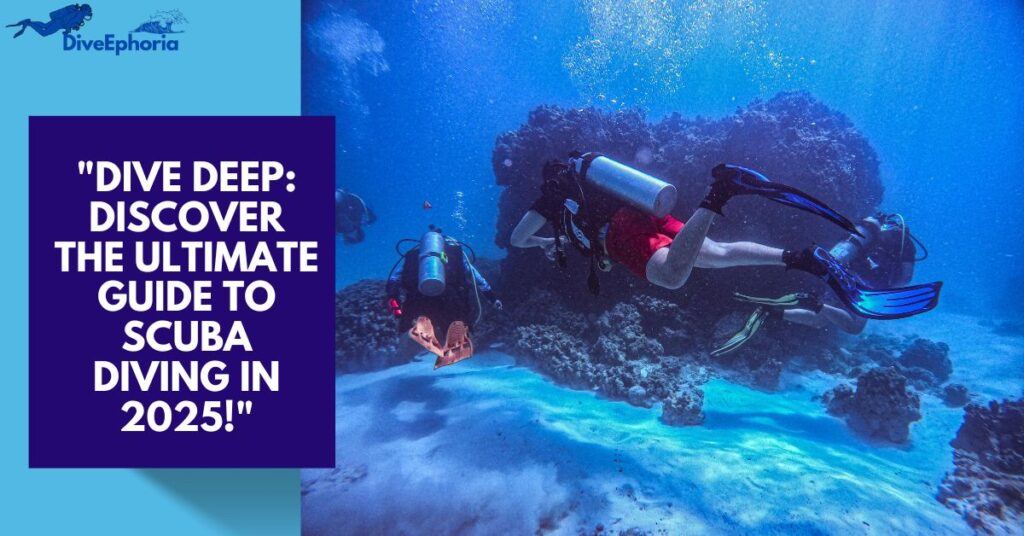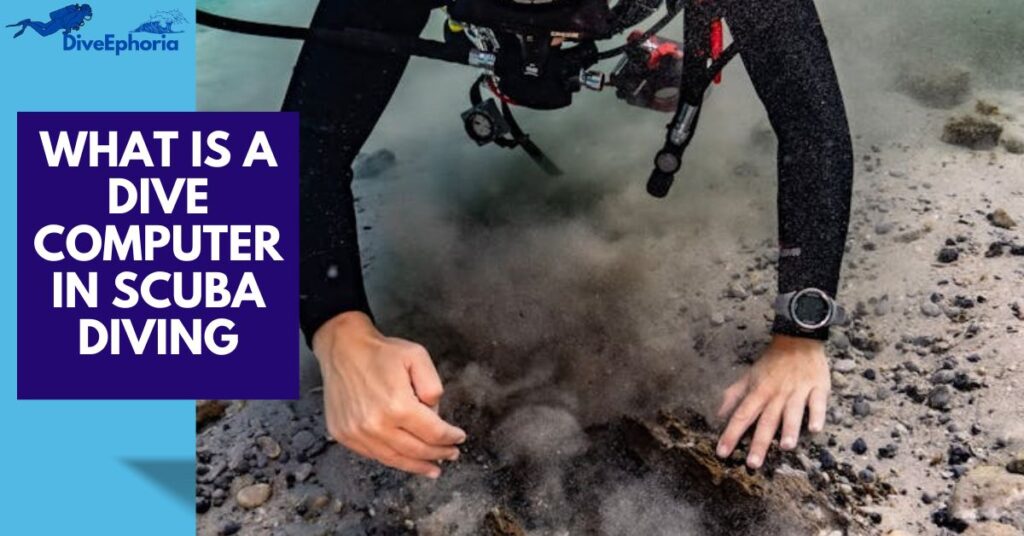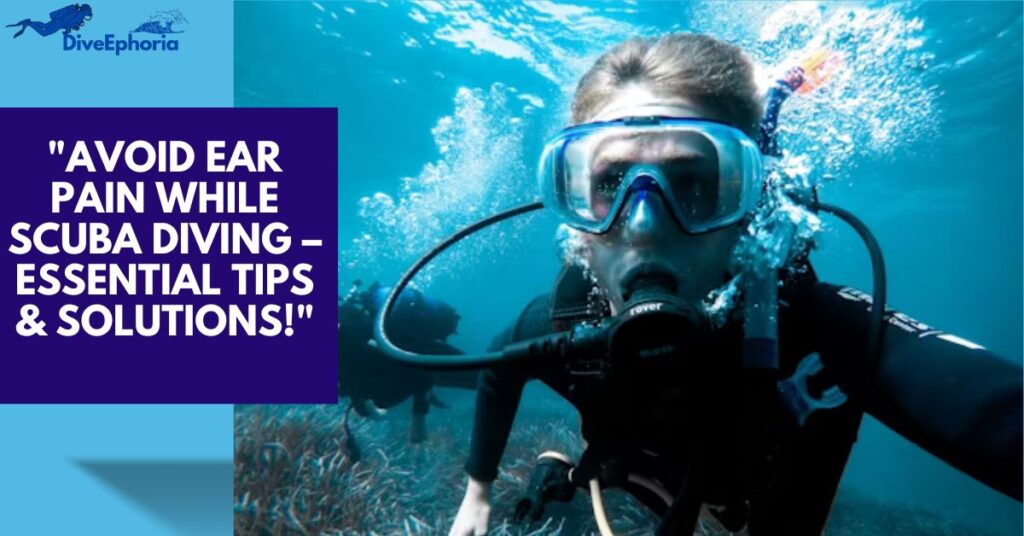
Introduction
Scuba diving is one of the most exciting and rewarding experiences, offering divers the chance to explore the stunning underwater world. However, it comes with its challenges, and one of the most common issues divers face is ear pressure problems. Whether you’re a beginner just starting to dive or an experienced diver with hundreds of dives under your belt, ear pressure problems can affect anyone.
The pressure changes that occur during a dive can have a significant impact on your ears, leading to discomfort, pain, or even injuries. The key to a safe and enjoyable dive experience is understanding these pressure changes and how to manage them effectively. Proper management of ear pressure can prevent serious conditions like ear barotrauma, ear squeeze, and even more severe injuries such as inner ear damage or middle ear infections.
In this comprehensive guide, we will dive deep into the causes of scuba diving ear pressure problems, explore how to prevent them, and discuss solutions if you experience pain or discomfort. Additionally, we will provide expert tips on equalizing techniques, dive planning, and health practices that can help reduce the risk of ear-related issues, ensuring that your dives are as safe and comfortable as possible.
Understanding Scuba Diving Ear Pressure Problems
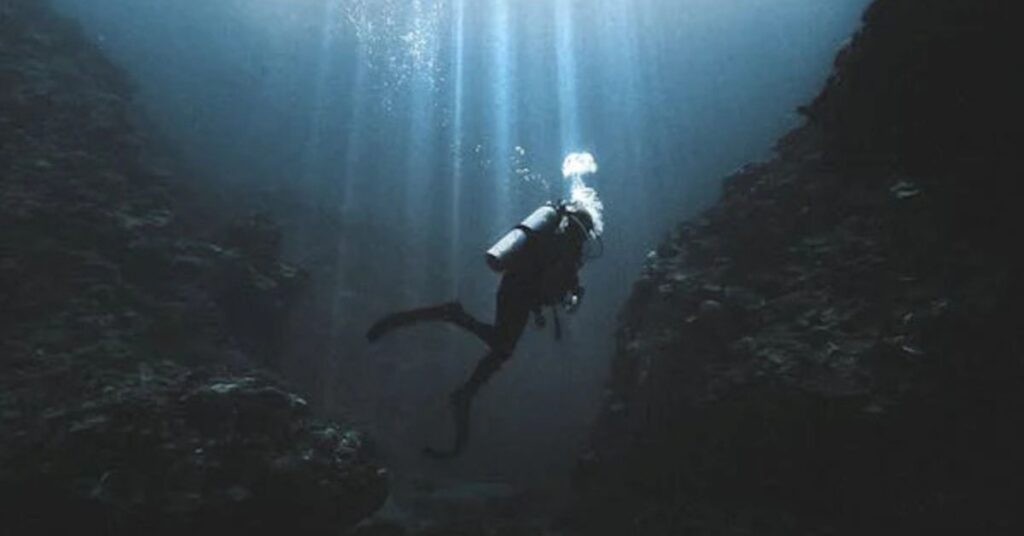
When you descend into the water while scuba diving, the pressure around you increases significantly as you go deeper. This increase in external pressure is what causes many divers to experience discomfort or even pain in their ears. For divers, ear pressure problems are common and can range from mild irritation to severe injuries if not managed properly. Understanding how ear pressure works during a dive and what causes these issues is the first step in preventing potential harm.
The human ear is made up of three main sections: the outer ear, the middle ear, and the inner ear. The middle ear, in particular, is where most ear pressure problems occur during scuba diving. As you descend, the external pressure increases, and your body needs to adjust to this pressure change in order to maintain balance. If this adjustment, known as equalization, does not occur, it can lead to painful or even dangerous conditions.
Here’s a breakdown of the most common scuba diving ear pressure problems and what causes them:
1. Ear Barotrauma:
Ear barotrauma is the most prevalent ear issue that divers face. It occurs when there is a failure to equalize ear pressure during a descent or ascent, which results in an imbalance between the external pressure and the pressure in the middle ear. As the external pressure increases while diving, your middle ear pressure needs to be equalized to prevent discomfort. When the pressure isn’t balanced, it can cause the eardrum to stretch or even rupture in severe cases.
Symptoms of ear barotrauma include pain, a feeling of fullness in the ear, muffled hearing, and in severe cases, dizziness or temporary hearing loss. Failing to manage ear barotrauma properly can lead to long-term hearing issues.
2. Ear Squeeze:
Ear squeeze is a condition that occurs when there is a significant difference between the external pressure and the pressure in the middle ear during a descent. When you descend too quickly or fail to equalize, the negative pressure in the middle ear can cause intense pain and discomfort, resulting in the sensation of “squeezing.” This occurs because the middle ear is not able to compensate for the rapid increase in external pressure, creating a vacuum-like effect that affects the ear.
The symptoms of ear squeeze can include sharp pain, the sensation of fullness, and even blood in the ear canal in extreme cases. If not addressed quickly, ear squeeze can lead to serious damage to the ear structures.
3. Middle Ear Infections (Otitis Media):
A common consequence of poor ear pressure management while diving is the development of middle ear infections, also known as otitis media. When there is trapped moisture or bacteria in the ear due to pressure changes or failure to equalize properly, it can lead to an infection. This is especially common if you dive with a cold, sinus issues, or any form of congestion, as these conditions can block the Eustachian tubes, making equalization more difficult.
Middle ear infections can cause pain, drainage from the ear, hearing loss, and a general feeling of discomfort. If left untreated, they can lead to more severe health issues, including eardrum perforation.
4. Inner Ear Damage:
In severe cases, if ear pressure is not properly equalized, it can lead to inner ear damage. This can occur when pressure imbalances affect the sensitive structures of the inner ear, including the cochlea and the vestibular system, which is responsible for balance.
Inner ear damage can result in vertigo, dizziness, nausea, and long-term hearing loss. This condition is rare but serious, and if you experience symptoms such as persistent dizziness or ringing in the ear (tinnitus) after a dive, it’s important to seek medical attention immediately.
How Ear Pressure Affects the Eustachian Tubes
A key factor in understanding scuba diving ear pressure problems is recognizing the role of the Eustachian tubes. These small tubes connect the middle ear to the back of the throat and are responsible for equalizing the pressure between the inside of your ears and the surrounding environment.
During a dive, the Eustachian tubes allow air to enter the middle ear to maintain a balance between the external and internal pressures. If these tubes are blocked—due to sinus issues, allergies, or a cold—it becomes much harder to equalize the pressure, putting you at risk for ear barotrauma, ear squeeze, and other ear problems.
Effective equalization techniques work by opening the Eustachian tubes to allow air to pass and equalize the pressure. However, if the tubes remain blocked, the diver may not be able to perform this function effectively, resulting in painful pressure buildup.
Pressure Imbalance and Rapid Descent
One of the leading causes of ear pressure problems is descending too quickly. As you descend, the water pressure increases, and your body needs time to adjust. If you descend too rapidly, the external pressure on your ears will increase faster than your ability to equalize, which can cause discomfort or injury.
Similarly, if you ascend too quickly, the rapid release of pressure can also create an imbalance, leading to ear barotrauma or other issues. Slow and controlled descents and ascents are essential for safe equalization and to avoid ear pressure problems during your dive.
Causes of Ear Pressure Issues While Diving
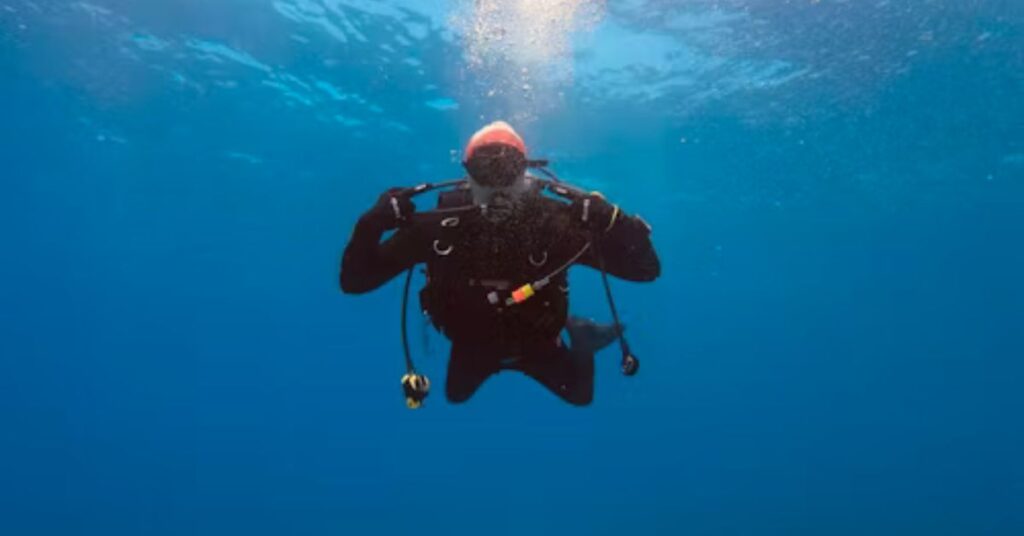
Causes of Ear Pressure Issues While Diving
Scuba diving offers incredible opportunities to explore the underwater world, but it also brings with it certain risks, especially when it comes to ear pressure. The human ear is sensitive to pressure changes, and as you descend into the water, the external pressure increases dramatically. The body needs to adjust to this pressure shift in order to avoid discomfort or injury.
Understanding the causes of ear pressure issues during a dive is essential for any diver to ensure a safe and enjoyable experience. The most common causes of ear pressure problems in scuba diving include the inability to equalize pressure, blocked Eustachian tubes, rapid descents, and improper equalization techniques. Below, we delve deeper into each of these causes, helping you understand how they affect your ears and what you can do to prevent them.
1. Inability to Equalize Pressure
The primary cause of ear pressure problems in divers is the inability to equalize ear pressure properly. Equalization is the process of adjusting the pressure inside the middle ear to match the external pressure as you descend or ascend while diving. The body’s natural mechanism for this involves the Eustachian tubes, which connect the middle ear to the back of the throat. These tubes allow air to flow into the middle ear, helping to balance the pressure.
When a diver fails to equalize pressure during a descent, the external pressure on the eardrum becomes greater than the pressure inside the middle ear, leading to discomfort, pain, or even injury. This condition is known as ear barotrauma. The longer a diver descends without equalizing, the greater the pressure difference, which can cause the eardrum to stretch, resulting in severe pain or rupture in extreme cases.
Prevention Tip: To prevent barotrauma, divers should start equalizing early and continue to do so throughout the descent. It’s also important to note that equalization becomes more difficult as you descend deeper, so addressing ear pressure problems early is key.
2. Blocked Eustachian Tubes
The Eustachian tubes play a crucial role in equalizing ear pressure during a dive. If these tubes become blocked, it becomes difficult to equalize the pressure in the middle ear, leading to painful ear pressure issues. Eustachian tubes can become blocked for various reasons, such as:
- Cold or Sinus Congestion: When you have a cold, the mucus produced in the nasal passages can block the Eustachian tubes, preventing the normal airflow needed to equalize pressure.
- Allergies: Seasonal allergies can cause inflammation and congestion in the nasal passages, leading to blocked Eustachian tubes.
- Sinusitis: Inflammation of the sinuses can also obstruct the Eustachian tubes, making equalization more difficult.
Blocked Eustachian tubes can cause a buildup of pressure in the middle ear, leading to discomfort, pain, or a condition known as ear squeeze. This occurs when the external pressure is greater than the pressure inside the middle ear, creating a vacuum effect that can cause injury to the eardrum.
Prevention Tip: If you’re experiencing nasal congestion or sinus issues, it’s best to postpone diving until you’re fully recovered. Using a decongestant (with medical approval) before your dive can help clear up congestion and make equalization easier.
3. Rapid Descents or Ascents
Another common cause of ear pressure issues is a rapid descent or rapid ascent during a dive. When you descend quickly, the external pressure around you increases too fast for the body to adjust to, making it harder to equalize the pressure in your ears. Similarly, ascending too quickly can cause a pressure imbalance, as the external pressure decreases much faster than the pressure in your middle ear, leading to pain or discomfort.
During a fast descent, the external water pressure increases rapidly, and if the diver doesn’t equalize in time, it can lead to ear barotrauma. A fast ascent can cause air bubbles to form in the middle ear and expand, which can rupture the eardrum or cause ear squeeze. Both conditions can cause significant pain and damage to the ear structures.
Prevention Tip: Always descend and ascend slowly and steadily. This allows your body and ears time to adjust to the changing pressures. A gradual ascent or descent can prevent the pressure from overwhelming your ability to equalize.
4. Poor Equalization Techniques
Even if you are aware of the need to equalize during a dive, using incorrect equalization techniques can lead to ear pressure issues. Some divers may use improper methods to open the Eustachian tubes or fail to perform the maneuver correctly, which can make equalizing more difficult and potentially harmful.
Common equalization mistakes include:
- Holding your breath too long while attempting to equalize
- Pinching your nose too tightly, which can cause discomfort and prevent the air from properly entering the Eustachian tubes
- Not equalizing early enough in the descent, allowing the pressure difference to become too great before attempting to equalize
- Forcing equalization too much can cause damage to the ear structures, including the eardrum or the middle ear
It’s essential to learn and practice the correct equalization techniques to avoid these issues. The three most commonly recommended techniques for equalizing ear pressure are:
- Valsalva Maneuver: Pinch your nose and gently blow air to force air into the Eustachian tubes.
- Toynbee Maneuver: Pinch your nose and swallow at the same time, which helps to open the Eustachian tubes naturally.
- Frenzel Maneuver: Close your vocal cords and push your tongue against the roof of your mouth to help force air into the middle ear.
Prevention Tip: Practice these equalization techniques on land before your dive to ensure you are using the correct methods and can perform them easily when needed underwater.
5. Diving with a Cold or Sinus Issues
One of the most important factors to consider before a dive is your overall health. Diving with a cold, sinus infection, or allergy symptoms can significantly increase your chances of ear pressure issues. When you have a cold, your nasal passages are often congested, and your Eustachian tubes are blocked. This prevents you from properly equalizing ear pressure, which can lead to pain, ear squeeze, or even ear infections.
In addition, sinus pressure can make it more difficult to manage ear pressure. The sinuses are connected to the ears via the Eustachian tubes, and when the sinuses are congested or inflamed, they can affect your ability to equalize pressure properly.
Prevention Tip: If you are feeling unwell, particularly with a cold, sinus congestion, or an upper respiratory infection, it’s best to avoid diving until you’ve fully recovered. Diving with these conditions can significantly increase the risk of ear pressure problems and complications.
How to Prevent Ear Barotrauma While Diving
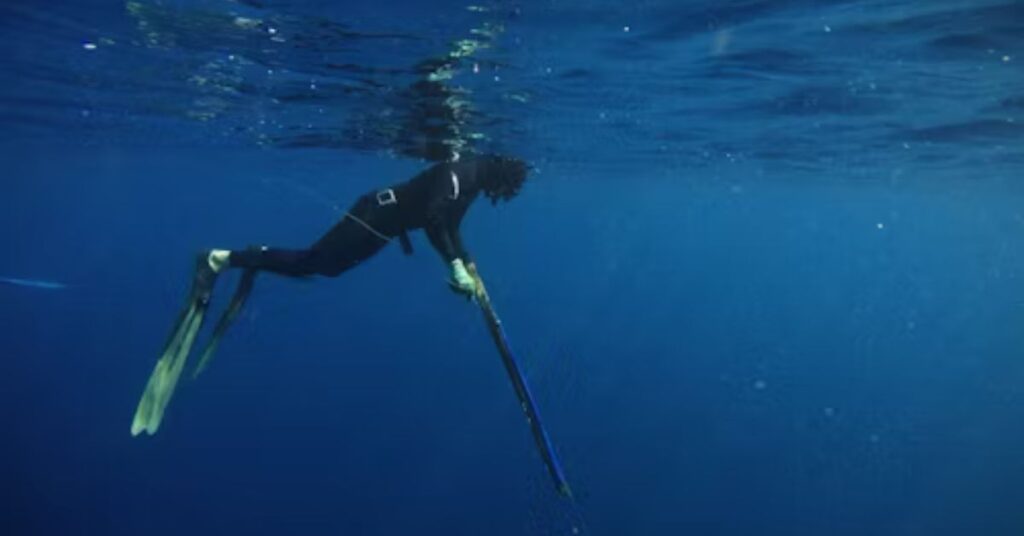
Ear barotrauma is one of the most common ear-related issues faced by divers, and it occurs when there’s an imbalance between the external pressure and the pressure in your middle ear during a dive. This condition can cause significant discomfort and, in severe cases, permanent damage to the ear structures. However, ear barotrauma is largely preventable if you understand how to manage ear pressure effectively and follow a few key practices before and during your dive.
In this section, we will explore the most effective ways to prevent ear barotrauma and keep your ears safe throughout your dive. From mastering equalization techniques to making smart dive plans, these tips will help ensure that you can enjoy your underwater adventures without risking ear injuries.
1. Master the Equalization Techniques
The first and most important step in preventing ear barotrauma is mastering proper equalization techniques. Equalizing ear pressure during your dive ensures that the pressure inside your middle ear matches the external pressure as you descend or ascend. The goal is to prevent the external pressure from becoming too great and damaging the delicate structures of your ear.
There are several equalization techniques that divers can use to open the Eustachian tubes, allowing air to enter the middle ear and equalize the pressure. The most common and effective equalization methods include:
- Valsalva Maneuver: This is the most widely known equalization technique. To perform it, pinch your nose shut, close your mouth, and gently exhale through your nose. This forces air into the Eustachian tubes, helping to equalize the pressure. It’s important to avoid forcing the air too hard, as doing so can cause damage to your ears.
- Toynbee Maneuver: Pinch your nose shut and swallow at the same time. Swallowing causes the muscles in your throat to open the Eustachian tubes, allowing air to flow into the middle ear. This technique is effective and less forceful than the Valsalva maneuver.
- Frenzel Maneuver: Close your vocal cords and push your tongue against the roof of your mouth to generate pressure. This method uses the same principles as the Valsalva maneuver but requires less force and is generally safer for deep dives.
Prevention Tip: Practice these techniques on land before your dive to ensure you can perform them easily and correctly when needed. Equalizing early and often during your descent will prevent painful pressure buildup.
2. Descend Slowly and Gradually
Rapid descents are a major contributor to ear barotrauma. When you descend too quickly, the external pressure around you increases much faster than your ability to equalize, leading to painful pressure imbalances in the ears. The body needs time to adjust to the changing pressure, and descending too fast doesn’t give the middle ear enough time to equalize effectively.
A gradual descent allows the body to adjust to the changing pressure more comfortably and safely. By descending slowly, you reduce the risk of ear pressure problems and give yourself more opportunities to equalize properly during the dive.
Prevention Tip: Control your descent rate and avoid descending faster than 30 feet per minute. This gives your ears time to adjust and equalize to the increasing external pressure. Most dive computers and dive tables provide safe descent rates for divers to follow.
3. Equalize Early and Often
Many divers make the mistake of waiting too long to begin equalizing during their descent. It’s crucial to start equalizing early and often to prevent ear pressure from building up. The deeper you go, the harder it becomes to equalize, so starting early allows you to keep the pressure change manageable.
You should start equalizing your ears as soon as you begin your descent. Equalize every few feet (or meters) to prevent pressure from building up. It’s also important to continue equalizing as you go deeper, especially if you’re reaching depths where the pressure change is significant.
Prevention Tip: Don’t wait until you feel discomfort to begin equalizing. Regularly equalize throughout the descent and ascent to keep the pressure in balance.
4. Stay Hydrated
Dehydration can have a negative impact on your ability to equalize ear pressure. When you are dehydrated, your mucous membranes, including those in your Eustachian tubes, can become drier and more difficult to open. This can make it harder to equalize and increase the risk of ear barotrauma.
Proper hydration also helps maintain the normal function of your sinuses and Eustachian tubes, allowing them to better handle pressure changes. If your body is dehydrated, your sinuses may produce thicker mucus, making equalization more difficult and uncomfortable.
Prevention Tip: Drink plenty of water before, during, and after your dive. Avoid alcohol and caffeine, as they can contribute to dehydration and exacerbate the problem.
5. Avoid Diving with a Cold or Sinus Congestion
Diving with a cold, sinus infection, or allergy symptoms can severely affect your ability to equalize ear pressure. When you have a cold or congestion, the Eustachian tubes may become blocked, making it difficult or impossible to equalize effectively. This blockage can lead to painful ear pressure and increase your risk of ear barotrauma or even ear infections.
If you have a cold, sinus congestion, or allergy symptoms, it’s best to postpone your dive until you are fully recovered. Attempting to dive with a blocked Eustachian tube can cause significant discomfort and injury.
Prevention Tip: If you experience nasal congestion or sinus pressure, consult with a healthcare professional before deciding to dive. A decongestant may help, but it should only be used with medical approval.
6. Use Decongestants and Nasal Sprays (When Necessary)
If you suffer from sinus issues or mild congestion, using an over-the-counter decongestant or nasal spray can help clear your airways and make it easier to equalize. These medications help reduce inflammation and open the Eustachian tubes, allowing air to flow into the middle ear during a dive.
However, it’s important to use decongestants cautiously and only as recommended by your healthcare provider. Overuse can cause side effects such as dry mouth or increased heart rate, which may be harmful during a dive.
Prevention Tip: Use decongestants or nasal sprays only if necessary and ensure that they are approved by your doctor. Avoid diving if you feel congested or unwell.
7. Avoid Forceful Equalization
Although it’s important to equalize regularly, it’s equally important not to force equalization. Forceful attempts to open the Eustachian tubes can damage the ear structures, potentially causing injury or even rupturing the eardrum. Always perform equalization techniques gently and avoid excessive pressure when attempting to equalize.
What to Do If You Experience Ear Pain After Diving
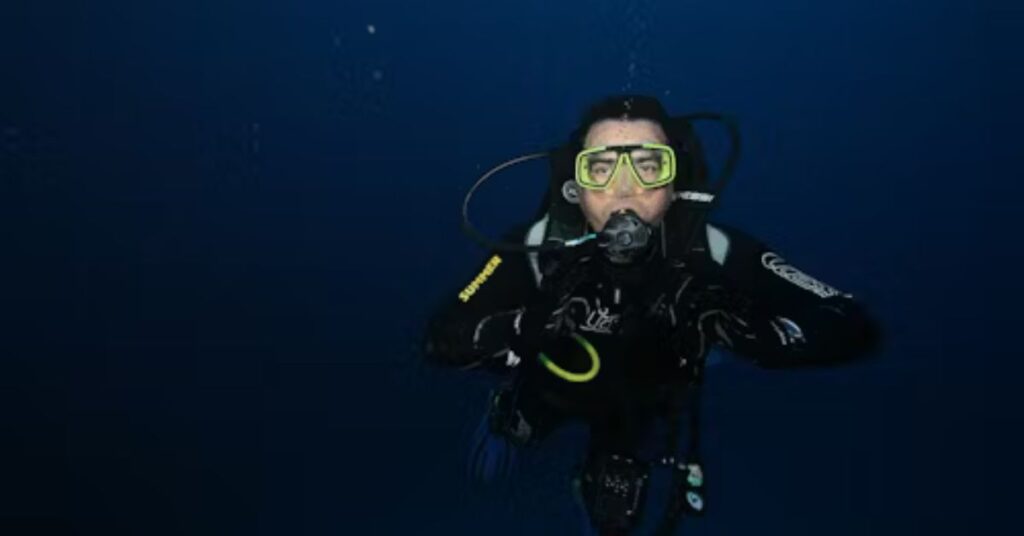
Experiencing ear pain after a dive can be a sign that something went wrong during the dive, such as improper equalization or rapid descent. It’s important not to ignore ear pain or discomfort, as it can be a symptom of ear barotrauma, ear squeeze, or even a more serious condition like an ear infection or ruptured eardrum. If you notice ear pain after diving, it’s crucial to take immediate action to prevent further damage and ensure proper treatment.
In this section, we’ll outline the steps you should take if you experience ear pain after diving, from immediate remedies to when to seek medical attention.
1. Stop Diving Immediately
If you feel ear pain during or after a dive, the first thing you should do is stop diving. Continuing to dive with ear pain or discomfort can exacerbate the condition, leading to more severe injuries. Pushing through the pain may lead to more serious issues such as ear barotrauma or a ruptured eardrum, which can cause permanent damage to the ear structures.
Prevention Tip: Always listen to your body. If you’re feeling discomfort or pain in your ears, stop diving and begin the process of addressing the issue immediately. Never push through ear pain, as this can have long-term consequences.
2. Ascend Slowly and Safely
If you’re still underwater and begin to experience ear pain, make sure to ascend slowly. A slow ascent is crucial in managing ear pressure and preventing further injury. Rapid ascents can cause a sudden change in pressure, which can worsen the pain or potentially lead to more serious complications, such as an expanding air bubble in the middle ear.
During your ascent, equalize your ears frequently by using the Valsalva or Toynbee maneuvers. These techniques will help balance the pressure in your ears as you ascend, alleviating some of the discomfort. Remember, slow and steady is key—aim for a maximum ascent rate of no more than 30 feet per minute.
Prevention Tip: Always give yourself time to equalize during the ascent, as the external pressure decreases, and make sure you don’t rush back to the surface. It’s better to take your time than risk worsening the problem.
3. Apply a Warm Compress
If you experience ear pain after diving, one of the simplest and most effective ways to ease the discomfort is by applying a warm compress to the affected ear. Heat can help increase blood flow and relax the muscles around the ear, which can relieve pressure and pain. A warm compress can also help reduce inflammation in the ear canal if you’re dealing with issues like ear squeeze or congestion.
To apply a warm compress:
- Soak a towel or cloth in warm (not hot) water and wring it out.
- Place it gently over the affected ear for 10–15 minutes.
- Repeat the process a few times, taking breaks in between to prevent irritation.
Prevention Tip: Never use hot water or heating pads directly on the ear, as this can cause burns or further irritation. The water should be warm but not too hot to the touch.
4. Take Anti-Inflammatory Medications
If your ear pain is due to inflammation or mild swelling, over-the-counter anti-inflammatory medications such as ibuprofen or acetaminophen can help reduce the pain and swelling. These medications can make you feel more comfortable while the issue resolves. However, it’s important to remember that these medications are only masking the symptoms—they do not treat the underlying cause of the pain.
Prevention Tip: Always follow the recommended dosage instructions for over-the-counter medications, and avoid taking more than the suggested amount. If the pain persists or worsens, it’s essential to seek professional medical attention.
5. Avoid Inserting Objects into the Ear
If you experience ear pain after diving, avoid the temptation to insert cotton swabs, fingers, or other objects into the ear canal. Inserting anything into the ear can irritate the ear canal, potentially pushing debris further into the ear or causing a tear in the eardrum. It can also make the situation worse by introducing bacteria, which could lead to an ear infection.
Instead of trying to clean or treat your ear yourself, it’s best to allow your ear to naturally heal or seek professional help if the pain persists.
Prevention Tip: Keep your ears dry and free from any foreign objects. If you’re experiencing ear congestion, consult with a healthcare professional for the best course of treatment.
6. Seek Medical Attention if Pain Persists
If the ear pain doesn’t subside after applying a warm compress or taking anti-inflammatory medications, or if you experience additional symptoms such as dizziness, ringing in the ears (tinnitus), hearing loss, or fluid drainage from the ear, it’s essential to seek medical attention immediately. These could be signs of a more serious issue such as a ruptured eardrum, ear infection, or middle ear damage.
A healthcare professional, preferably an ENT specialist (ear, nose, and throat doctor), can evaluate your condition and provide the appropriate treatment. In some cases, you may require medications, antibiotics, or a minor medical procedure to address the issue.
Prevention Tip: If you’re a frequent diver, it’s wise to schedule a routine check-up with an ENT specialist to ensure your ear health is in good condition before you continue diving.
7. Avoid Diving Until Fully Recovered
After experiencing ear pain, avoid diving until you have fully recovered and received medical clearance if necessary. Diving with unresolved ear issues can lead to further complications, including a ruptured eardrum or chronic ear problems. Diving too soon after an injury can also worsen the problem, potentially leading to long-term damage to your hearing and ear structures.
Consult with your healthcare provider to confirm that your ears are healthy and clear of any underlying issues before you return to the water. In many cases, it’s important to wait several days or even weeks before resuming diving activities, depending on the severity of your ear pain.
Prevention Tip: Always give your ears time to heal and follow your doctor’s advice on when it’s safe to dive again. A little patience now can help avoid more significant issues down the line.
Conclusion
Ear pain after diving should never be ignored. If you experience discomfort, it’s important to stop diving, ascend safely, and take immediate steps to manage the pressure in your ears. Applying a warm compress, using anti-inflammatory medications, and seeking professional medical care when necessary are all essential steps to protect your ear health. Preventative measures, such as mastering equalization techniques and avoiding diving when sick, can help minimize the risk of ear pain in the first place.
If the pain persists or you notice additional symptoms like dizziness or hearing loss, always seek medical attention to ensure that your ears are not experiencing more serious damage. Remember, your ear health is critical for safe and enjoyable diving, and taking care of it should always be a priority.
For more tips on diving safety and how to protect your health underwater, check out our other related articles on dive safety and underwater health precautions.
FAQs
How can I equalize ear pressure while diving?
Use techniques like the Valsalva or Toynbee maneuver. Descend slowly and practice equalization regularly.
What happens if I can’t equalize my ears while diving?
Failure to equalize can lead to ear barotrauma, pain, and even hearing damage. If you can’t equalize, ascend slightly and try again.
Can I dive with ear barotrauma?
No, diving with barotrauma can worsen the condition and cause serious ear damage.
How long does it take for ear barotrauma to heal?
Mild cases heal within a few days, but severe cases may take weeks and require medical treatment.
Are there any long-term effects of ear barotrauma?
Repeated ear injuries can lead to chronic issues such as hearing loss, tinnitus, or balance problems.

